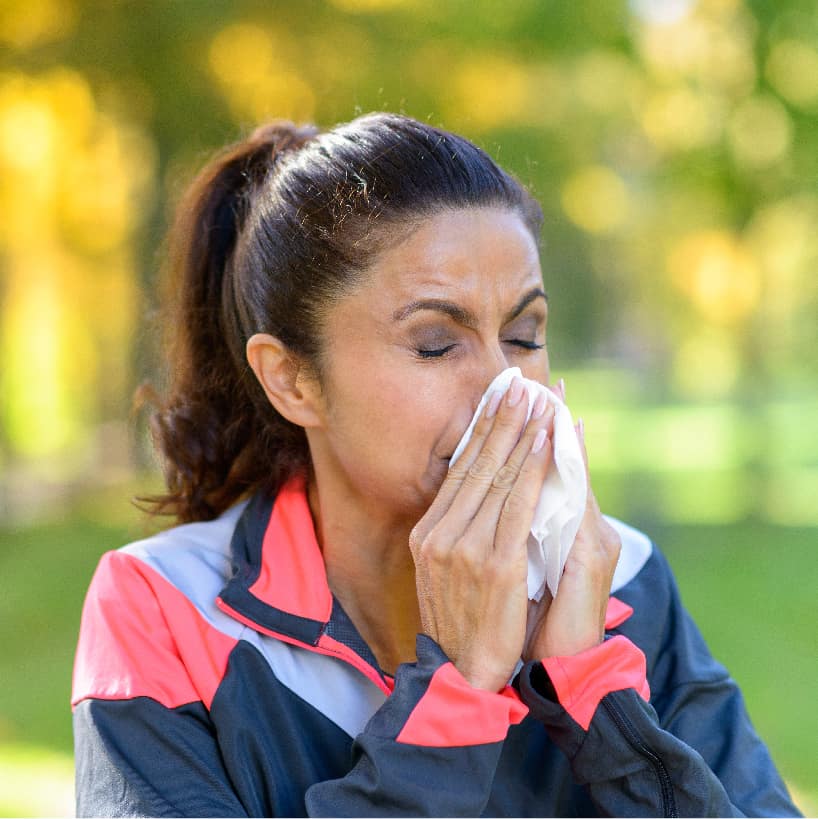
Title: A Personal Revelation: How Relocating to Málaga Benefited Both Me and My Patients’ Breathing
By Georgiana Ilie, MD
As a physician specializing in occupational medicine, the question “Do you have any allergies?” is standard in my intake process. However, after relocating to Málaga, Spain, an unexpected trend started surfacing in my practice: a surprising number of patients—from diverse global origins—reported a common, unexplained occurrence.
They had endured respiratory allergies for years, yet since their move to Málaga, those symptoms had disappeared. These were not isolated cases. Patients hailing from India, Cuba, Venezuela, and Poland—spanning four different continents—shared strikingly similar experiences.
Then it dawned on me: I was part of this phenomenon.
Having battled allergies for decades, from childhood food sensitivities and eczema to adult-onset asthma in Romania, I was all too familiar with allergic distress. But after three years in Málaga? No wheezing. No coughing. No nighttime inhalers. I hadn’t required any medication whatsoever.
This observation prompted me to explore a deeper inquiry, both as a physician and as a patient: What is it about Málaga that makes it an unexpectedly allergy-friendly haven?
Understanding Allergies: A Complex Interaction Beyond Genetic Factors
Allergies arise from an exaggerated immune system response to typically benign substances, such as pollen, dust, pet dander, and mold. Yet, the origins of allergies are far more intricate than mere exposure.
According to medical anthropologist Theresa McPhail, allergies signify a type of “biological rebellion,” reflecting how our bodies misinterpret environmental signals—often intensified by modern-day pollutants and stressors. In her book Allergic: Our Irritated Bodies in a Changing World, McPhail emphasizes the fluid nature of allergies, which adapt over time, place, and context.
Growing scientific research supports this notion. A 2024 meta-analysis entitled The Association Between Migration and Prevalence of Allergic Diseases concluded that migration influences allergic tendencies. People relocating from rural areas to urban settings often experience worsening allergies, likely due to heightened pollution and allergen exposure in cities. In contrast, relocating from a polluted urban area to a cleaner coastal site can substantially alleviate allergy symptoms.
For myself and numerous patients, Málaga—a sunlit city bordered by the Mediterranean—was a quintessential example.
What Sets Málaga Apart?
1. Pristine Coastal Air
Air quality is crucial in allergic responses. I was raised and practiced in Bucharest, where air pollution routinely exceeds safe limits. Conversely, Málaga benefits from relatively pure coastal air, typically maintaining an air quality index under 50—a figure often three times better than major inland cities.
Additionally, the sea breeze acts as a natural air purifier. It diminishes airborne pollen and dust, two primary offenders in allergic reactions. Salty sea air may also calm bronchial passages, decreasing inflammation and promoting easier breathing.
2. Mediterranean Climate
Málaga’s warm, arid summers and gentle, wet winters result in less mold and consistently lower levels of airborne allergens compared to more temperate regions. Inland areas, where temperature variances are more significant, often experience spikes in pollen and ragweed. On the Costa del Sol, such spikes tend to be less severe and short-lived.
3. Abundant Sunlight and Vitamin D
Vitamin D plays a subtle yet significant role in immune function. It aids in regulating immune responses, mitigating hyperactivation that triggers allergic reactions. A 2016 study regarding Vitamin D’s impact on allergy development found that those with adequate sunlight exposure achieved better immune regulation and experienced fewer allergy symptoms.
In Bucharest, overcast skies dominate much of the year, contributing to low vitamin D levels in the populace. However, in Málaga, with over 300 days of sunshine each year, vitamin D levels rise naturally—along with immune system balance.
4. Lifestyle and Mental Well-Being
Beyond environmental factors, relocating to Málaga may also enhance mental health, which subsequently affects physical symptoms. Stress aggravates various chronic conditions, including asthma. The sea, sunshine, and relaxed pace of Andalusian life have a proven soothing effect on many individuals. With improved mental wellness, immune responses generally stabilize, reducing allergy flare-ups.
Implications for Healthcare Professionals
This personal journey has profoundly transformed how I engage with patients displaying persistent or inexplicable allergic symptoms. In gathering patient histories, I now inquire more thoroughly about geography and lifestyle. I view environmental variables not only as potential allergens but also as possible therapeutic avenues.
Could a patient’s recent move have alleviated an allergic condition? Might recommending a temporary change of climate help identify triggers?
While relocating to the coast may not be a feasible or necessary solution for every patient, understanding the relationship between environment and immunity is crucial. It serves as a reminder to treat the whole person, not just the symptoms.